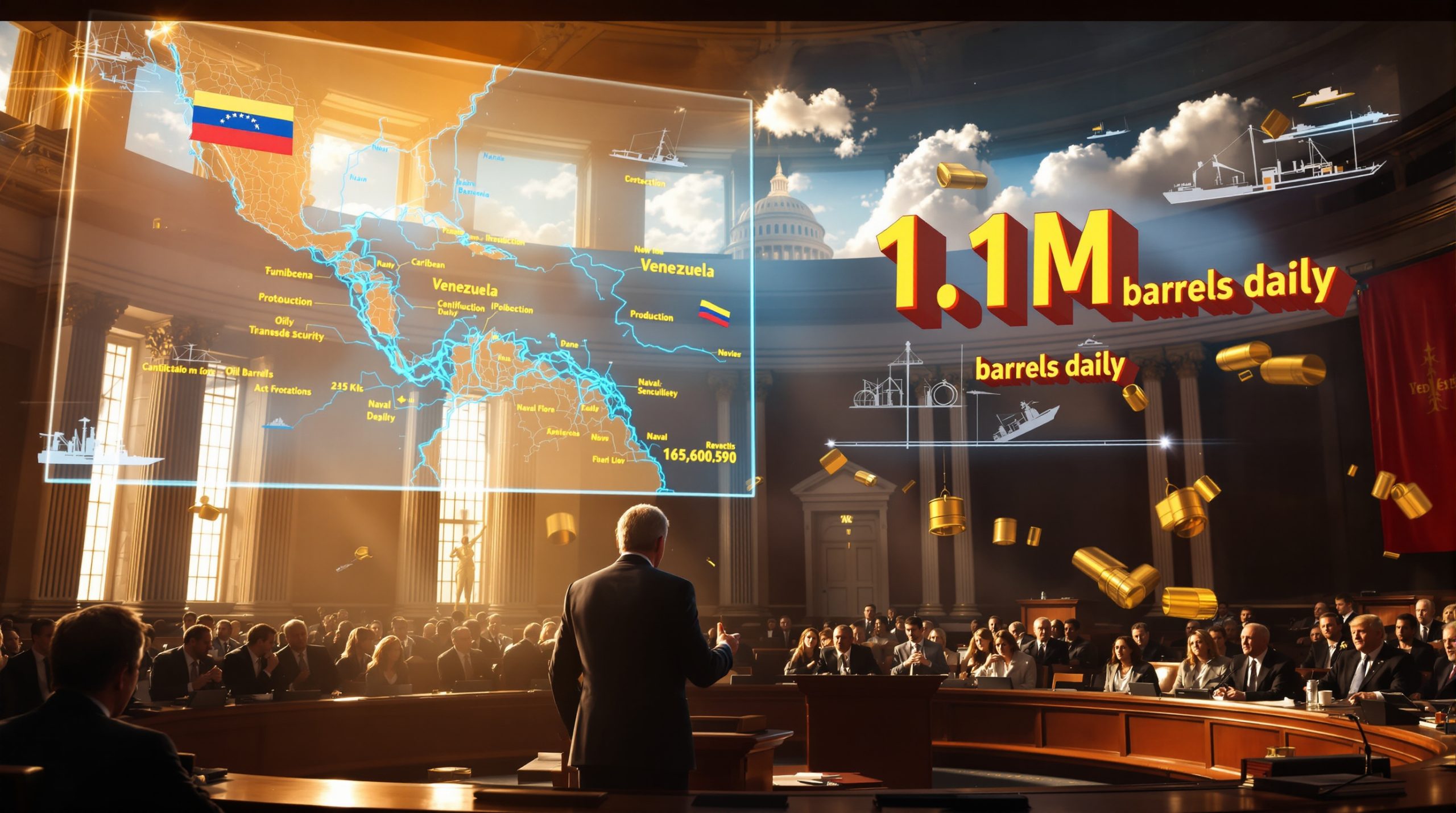Understanding the Scale and Scope of Energoatom's Corruption Network
Ukraine's National Anti-Corruption Bureau has unveiled the country's most comprehensive Ukraine energy sector corruption probe, exposing a criminal network that systematically extracted millions from the nation's nuclear infrastructure during wartime. The probe centres on a shadow management structure operating independently of official oversight within Energoatom, Ukraine's primary nuclear energy provider responsible for generating billions in annual revenue.
The investigation has documented how external actors assumed unauthorised control over contract approval processes, creating what investigators describe as a parallel administrative hierarchy. This unauthorised structure enabled systematic extraction of illegal benefits from contractors seeking business relationships with the nuclear monopoly.
The Financial Architecture of the Corruption Scheme
Table: Investigation Metrics and Financial Impact
| Metric | Value | Operational Significance |
|---|---|---|
| Contract Kickback Rate | 10-15% | Standard bribe percentage demanded from contractors |
| Annual Company Revenue | $4.7 billion | Total Energoatom revenue base targeted by network |
| Investigation Duration | 15 months | Extended surveillance operation timeline |
| Audio Evidence | 1,000+ hours | Wiretapped conversations documenting scheme |
| Coordinated Raids | 70 simultaneous | Enforcement actions across multiple locations |
The criminal organisation established a percentage-based extraction model that created predictable revenue streams whilst inflating costs for critical energy infrastructure projects. According to The Guardian's reporting, the scheme involved "systematic receipt of illegal benefits…in the amount of 10-15 percent of the value of contracts," demonstrating the sophisticated financial architecture underlying the corruption network.
Furthermore, this model effectively created a shadow tax on all major procurement activities within Ukraine's nuclear sector. Investigators documented how the network pressured contractors into compliance through coded communications and unauthorised decision-making authority.
Surveillance Methods Used to Penetrate the Shadow Management System
The National Anti-Corruption Bureau employed advanced surveillance techniques spanning 15 months to document the corruption network's operational structure. Investigators successfully penetrated communication networks using individuals operating under code names, revealing how external actors assumed control over contract approval processes without official authorisation.
Comprehensive Evidence Collection Framework
The investigation methodology encompassed multiple intelligence-gathering approaches:
• Extended wiretapping operations documenting over 1,000 hours of conversations between network participants
• Financial transaction monitoring across multiple business entities connected to the scheme
• Coordinated property searches targeting 70 locations simultaneously on November 10, 2025
• Contract analysis examining pricing patterns and approval irregularities
• Communication intercepts revealing operational hierarchies and coded messaging systems
Additionally, investigators identified key figures operating under pseudonyms including "Roket" and "Tenor," who systematically pressured contractors into paying bribes. The surveillance capability demonstrated institutional capacity to track complex communication networks even during wartime resource constraints.
Critical Surveillance Insight: The corruption network employed operational security measures including coded communications, indicating awareness of potential law enforcement monitoring and sophisticated criminal organisation structure.
In addition, the investigation's technical sophistication enabled documentation of how the shadow management system functioned independently of official corporate governance. The ABC News report noted the scheme "was managed not by top executives, the supervisory board, or the state as the owner, but by an outsider who, without any official authority, assumed the role of a shadow manager."
High-Profile Figures Connected to the Investigation
The Ukraine energy sector corruption probe has reached individuals with direct connections to the country's highest levels of government and business establishment, demonstrating how corruption networks can extend across institutional boundaries during critical periods.
Political and Business Connections Under Investigation
Key Individuals Named in Media Reporting:
| Individual | Position/Connection | Investigation Status | Notable Details |
|---|---|---|---|
| Timur Mindich | Co-owner, Kvartal 95 studio | Home searched, reportedly fled country | Zelenskyy comedy troupe business partner |
| Volodymyr Kudrytskiy | Former electricity grid head | Arrested, out on bail | Claims charges are politically motivated |
| Anatoliy Komar | Former customs chief (energy sector) | Under investigation | Luxury lifestyle inconsistent with declared income |
Timur Mindich Connection: According to reporting, Mindich co-owns Kvartal 95, the Ukrainian comedy studio whose other co-founder is President Volodymyr Zelenskyy. Local media reported he left Ukraine hours before the coordinated raids began, though these reports remain unverified and Mindich has not commented publicly on the investigation.
Volodymyr Kudrytskiy's Response: The former head of Ukraine's state-run electricity grid was arrested on embezzlement charges and remains out on bail. He has denied the charges, characterising them as politically motivated and alleging they "could not have happened without the involvement of the presidential office."
Anatoliy Komar's Lifestyle Discrepancy: Investigation in July 2025 documented that Komar, who headed the Customs Service department overseeing energy import/export duties during February 2022, maintained luxury assets inconsistent with his approximately $2,000 monthly salary. When questioned about financing these assets, he stated they were paid for by a "godfather" who was a "fairly wealthy person," but declined to elaborate.
Investigative Scope: The probe's reach into entertainment industry, government, and customs administration demonstrates the multi-sector nature of the alleged corruption network.
What Makes This Investigation Different from Previous Efforts?
This investigation represents a significant escalation in Ukraine's anti-corruption enforcement capabilities, particularly considering the wartime context and strategic importance of energy infrastructure security. The scope and sophistication of the current probe distinguish it from previous efforts in several critical dimensions.
Historical Context of Energy Sector Investigations
Ukraine's energy sector has long been recognised as a focal point for systemic corruption, with the current investigation building upon previous enforcement actions:
• Customs department irregularities involving energy import/export duties and luxury lifestyle discrepancies among officials
• Electricity grid management cases targeting embezzlement within distribution systems
• Luxury asset investigations documenting income inconsistencies amongst energy sector officials
Table: Investigation Scope Comparison
| Investigation Focus | Scale | Duration | Sector Impact |
|---|---|---|---|
| Previous Customs Probes | Individual officials | 6 months | Import/Export duties |
| Grid Management Cases | Department-level | 3 months | Electricity distribution |
| Current Energoatom Investigation | Network-wide criminal organisation | 15 months | Nuclear generation monopoly |
However, the current investigation's 15-month timeline and 1,000+ hours of audio evidence collection demonstrate unprecedented resource allocation and technical capability compared to previous efforts. The coordination of 70 simultaneous raids also indicates enhanced operational capacity within Ukraine's anti-corruption institutions.
Institutional Evolution During Wartime
The investigation occurs alongside broader uranium market volatility affecting global energy security calculations. Furthermore, the OECD noted in a 2025 report that "corruption risks remain high in the context of Russia's full-scale invasion of Ukraine," making this investigation's success particularly significant.
Consequently, Western governments and Ukrainian civil society have maintained pressure for institutional independence, with attempts to weaken anti-corruption bodies in 2025 sparking "Ukraine's biggest protests since Russia's full-scale invasion in 2022."
Presidential Leadership Role in Anti-Corruption Enforcement
President Volodymyr Zelenskyy's public endorsement of the investigation signals sustained commitment to institutional integrity during wartime pressures. His statements emphasise the strategic importance of maintaining corruption-free critical energy infrastructure whilst the country manages military and economic challenges.
Presidential Stance on Energy Sector Integrity
In his daily address on November 10, 2025, President Zelenskyy specifically characterised the investigation as essential for national security. He stated that measures against corruption are "very necessary" and emphasised that Energoatom, as "the largest energy provider in Ukraine," requires institutional cleanliness.
The presidential response included several key elements:
• Public endorsement of National Anti-Corruption Bureau enforcement actions
• Strategic framing linking energy sector integrity to national security priorities
• Judicial support emphasising that formal convictions must follow investigations
• Institutional backing for anti-corruption bodies during wartime conditions
Presidential Context: Zelenskyy's emphasis that "sentences must be handed down" indicates expectation of prosecutorial follow-through rather than merely investigative exposure.
The presidential endorsement carries particular significance given Zelenskyy's personal connection to one individual under investigation through their shared business history in entertainment. This demonstrates institutional commitment transcending personal relationships when strategic energy security is at stake.
Wartime Governance Implications
The investigation's presidential backing during active conflict indicates that anti-corruption enforcement is viewed as essential to maintaining Western support and domestic legitimacy. Energy sector integrity becomes particularly critical when infrastructure faces ongoing military targeting and international assistance depends on institutional credibility.
How Have International Stakeholders Influenced Anti-Corruption Priorities?
Western governments and international organisations have maintained sustained pressure on Ukraine to strengthen anti-corruption institutions, viewing such efforts as essential to Ukrainian credibility and continued international support during wartime reconstruction efforts.
OECD Assessment and International Monitoring
The Organisation for Economic Cooperation and Development published a comprehensive report in 2025 highlighting ongoing institutional vulnerabilities. The assessment identified several critical areas requiring attention:
• Corruption risks remain elevated during wartime conditions and reconstruction planning
• Institutional independence requires protection from political interference across all sectors
• Transparency mechanisms need strengthening within strategic state enterprises
• Accountability systems must function effectively despite military resource constraints
International Pressure Documentation: When Ukraine's government attempted to weaken anti-corruption institutions in 2025, "ordinary Ukrainians and Western governments…pushed Zelenskyy to reverse a law that took away the independence of the country's leading anti-corruption bodies." The initial legislation "sparked Ukraine's biggest protests since Russia's full-scale invasion in 2022."
Civil Society and Diplomatic Coordination
The successful reversal of anti-corruption body weakening demonstrates effective coordination between domestic civil society and international diplomatic pressure. This indicates that institutional integrity has become integrated into Western strategic support calculations for Ukraine.
Table: International Oversight Mechanisms
| Oversight Type | Scope | Implementation | Strategic Impact |
|---|---|---|---|
| OECD Reports | Institutional assessment | Annual evaluation cycles | Policy reform pressure |
| Western Government Pressure | Diplomatic engagement | Bilateral relationship conditions | Financial assistance linkage |
| Civil Society Advocacy | Public mobilisation | Protest organisation | Domestic legitimacy maintenance |
| Media Investigation | Transparency reporting | Independent journalism | Public accountability |
Strategic Integration: Anti-corruption enforcement has become a prerequisite for sustained Western assistance, with institutional independence viewed as essential to Ukrainian sovereignty and reconstruction credibility.
Energy Security and Corruption Interconnections
The investigation's findings highlight critical vulnerabilities in how corruption networks can compromise national energy security during periods of strategic vulnerability. The systematic extraction of funds from nuclear energy infrastructure creates multiple layers of security risk extending beyond immediate financial losses.
Strategic Vulnerability Assessment
Corruption within critical energy infrastructure generates compound security risks:
• Infrastructure reliability compromised through corrupted procurement and maintenance processes
• Cost inflation reducing available resources for system upgrades and security improvements
• Technical standards potentially degraded through corrupt contractor selection favouring kickbacks over competence
• Foreign influence risks through corrupt intermediary networks that may serve external interests
• Resource diversion from defensive capabilities to private enrichment during active conflict
The nuclear sector's strategic importance amplifies these risks, as Energoatom's $4.7 billion annual revenue base represents a significant portion of Ukraine's energy generation capacity. Systematic extraction of 10-15% from major contracts effectively creates a shadow tax on energy security investments.
Wartime Energy Infrastructure Vulnerabilities
During active conflict, energy infrastructure faces dual pressures from military targeting and internal corruption networks. Moreover, the investigation demonstrates how internal corruption can undermine defensive capabilities by:
• Inflating project costs for critical infrastructure hardening against military attacks
• Compromising vendor selection for security-critical systems and maintenance contracts
• Creating intelligence vulnerabilities through corrupt networks potentially exploited by foreign actors
• Reducing system redundancy through diverted funds that should enhance grid resilience
The situation is further complicated by global US uranium disruption and the implementation of a Russian uranium ban. Additionally, related issues like the Ukrainian VAT suspension affecting energy companies and recent uranium mining halt decisions globally demonstrate the interconnected nature of energy security challenges.
Critical Security Assessment: Corruption within strategic energy infrastructure during wartime creates compound vulnerabilities affecting both immediate operational capacity and long-term security resilience.
Potential Governance Reforms Following Investigation
The comprehensive nature of this probe suggests potential structural reforms in how Ukraine manages strategic energy assets and institutional oversight mechanisms. The investigation's findings may catalyse systematic changes extending beyond immediate prosecutions.
Proposed Institutional Enhancement Framework
Future energy sector governance improvements may encompass:
• Enhanced transparency requirements for all major contract approvals exceeding specified thresholds
• Independent oversight boards with protected institutional autonomy from political interference
• Systematic audit processes for high-value infrastructure projects with public reporting requirements
• Whistleblower protection programmes specifically designed for industry insiders reporting corruption
• International monitoring partnerships for major energy investments involving foreign assistance
Table: Governance Enhancement Opportunities
| Reform Area | Current Vulnerability | Proposed Enhancement | Implementation Timeline |
|---|---|---|---|
| Contract Transparency | Limited public disclosure | Mandatory publication requirements | 6-12 months |
| Oversight Independence | Political interference risks | Protected institutional autonomy | 12-18 months |
| Audit Frequency | Irregular evaluation cycles | Systematic review schedules | 3-6 months |
| Reporting Mechanisms | Limited whistleblower protection | Enhanced safety protocols | 6-9 months |
International Integration Requirements
European Union membership aspirations may require adoption of enhanced governance standards that exceed current Ukrainian practices. The investigation's documentation of systematic corruption could accelerate implementation of EU-compatible oversight mechanisms.
Reform implementation may include:
• EU-standard procurement processes with enhanced transparency and competitive bidding requirements
• Cross-border audit cooperation enabling international oversight of major energy projects
• Standardised reporting frameworks compatible with European transparency initiatives
• Joint investigation protocols facilitating international cooperation on cross-border corruption cases
Lessons for Wartime Anti-Corruption Strategy
The investigation demonstrates that maintaining institutional integrity during wartime requires sophisticated enforcement capabilities and sustained political commitment. The probe's success offers strategic insights for managing governance challenges during extraordinary circumstances.
Strategic Lessons from Wartime Enforcement
Key insights emerging from the investigation include:
• Institutional continuity remains essential during crisis periods, with anti-corruption capabilities requiring protection from wartime resource reallocation
• International support provides crucial accountability pressure that domestic institutions may lack during military focus
• Public transparency helps maintain domestic legitimacy when governance resources are constrained by military priorities
• Systematic enforcement deters opportunistic corruption that may increase during institutional stress
• Cross-sector coordination enhances investigation effectiveness by preventing corruption network migration between sectors
Wartime Governance Principle: Crisis circumstances intensify rather than diminish the strategic importance of anti-corruption enforcement, as institutional credibility becomes essential to maintaining domestic and international support.
Institutional Resilience Under Stress
The investigation's 15-month duration overlapping with active conflict demonstrates that sophisticated anti-corruption operations can be sustained during wartime conditions. This indicates that institutional capacity building remains viable even under extraordinary circumstances.
The successful coordination of 70 simultaneous raids whilst managing military operations suggests that anti-corruption institutions can maintain operational effectiveness when provided adequate resources and political backing.
Institutional Capacity Indicators:
- Sustained surveillance operations during military conflict
- Coordinated multi-location enforcement actions
- Technical evidence collection maintaining legal standards
- International cooperation despite wartime constraints
- Public communication maintaining transparency principles
Redefining Energy Sector Accountability During Crisis
Ukraine's comprehensive Ukraine energy sector corruption probe establishes new benchmarks for institutional accountability during extraordinary circumstances. The probe's methodological sophistication, high-profile targets, and presidential endorsement demonstrate that wartime conditions need not compromise governance standards.
The investigation's significance extends beyond immediate prosecutions to encompass systematic governance reforms, international credibility maintenance, and long-term institutional strengthening. As Ukraine continues managing military challenges whilst pursuing European integration, this case proves how anti-corruption enforcement serves both immediate accountability objectives and strategic governance goals.
The broader implications for energy security highlight how corruption networks create compound vulnerabilities affecting infrastructure reliability, cost efficiency, and foreign influence resistance. The investigation's documentation of systematic extraction mechanisms provides a framework for understanding how internal corruption can undermine national security during periods of external threat.
Disclaimer: This analysis is based on publicly available reporting and should not be considered definitive legal or policy guidance. Ongoing investigations may reveal additional information that could modify these assessments. All financial figures and quotes are sourced from reporting published November 11, 2025.
The Ukraine energy sector corruption probe ultimately demonstrates that institutional integrity and national security are interconnected priorities requiring sustained attention regardless of external circumstances. The investigation's success during wartime conditions indicates that governance reform remains achievable when supported by appropriate resources, political commitment, and international cooperation frameworks.
Looking for Investment Opportunities in Energy Infrastructure?
Discovery Alert's proprietary Discovery IQ model delivers real-time alerts on significant mineral discoveries across the Australian Stock Exchange, helping investors identify actionable opportunities in critical sectors like uranium and energy metals. Start your 30-day free trial today and discover how historic mineral discoveries have generated substantial returns for early-positioned investors.




